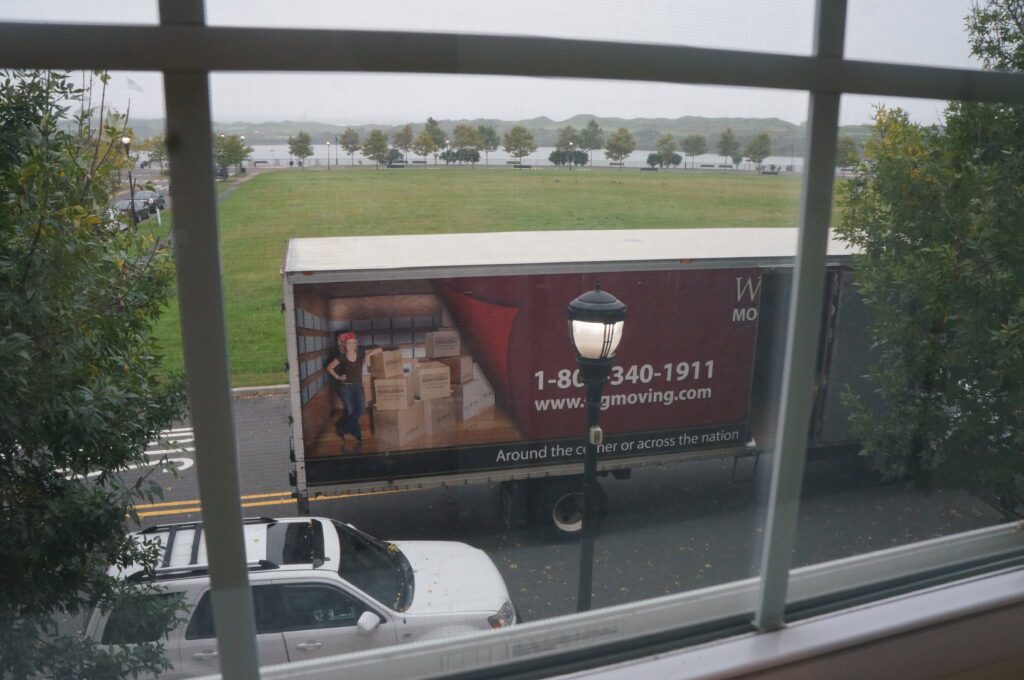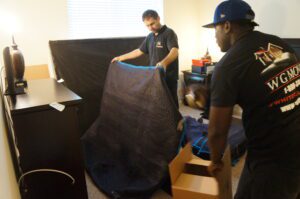
Nov
How to calculate local mover costs
So how much will a local mover cost? To learn more, use our free moving cost estimator. Tell us where you’re coming from and where your new house will be located.
To choose your move’s size (measured in bedrooms), the packing services you’ll require, and the move date, use the drop-down menu. To provide you with an exact pricing estimate from a top local mover, we’ll take all of these things into account.

Factors that Influence the Cost of a local Mover
Don’t forget to include all necessary moving fees and extra costs when figuring out moving prices. These local mover costs consist of:
Travel costs – When relocating a great distance, travel costs can mount up. These prices account for labor charges for the time it will take the local mover to travel from house A to house B as well as fuel costs.
How much you’re moving—do you have a lot? The move will take longer, and your shipment of items will weigh more as well. Costs can go up as a result of this. As a general rule, moving will cost more the more belongings you need to move.
Moving and packing – Although convenient, hiring movers to box up your possessions may run you an additional several hundred dollars or more.
Of again, if hiring packers saves you the time, effort, and hassle of having to pack up a home, the cost may be well worth it.
Moving accessories– Any extra services you select will have an impact on the price of your move. This could entail taking apart and reassembling furniture, moving specialized goods, and using moving equipment offered by movers like stretch wrap, felt pads, and mattress bags.
Storage – If your relocation is going to be difficult, you might decide to have a moving company hold or store all of your possessions before, during, or after the transfer. Just be aware that this service will cost more. Ask for specifics as storage costs vary from moving company to moving company.
Moving supplies – You’ll need to budget for the cost of moving supplies if you can’t find enough free boxes for your relocation. These could consist of cardboard boxes, plastic containers, bubble wrap, packing paper, and any other moving-related packing supplies.
Moving date – Keep in mind that timing your relocation is just as crucial as technique. That’s because the precise day of your move might have a big impact on the cost. For instance, moving on a weekend or during a busy season usually costs substantially more than moving during the workweek or outside of peak times.
Liability and value coverage – You’ll probably need to obtain some kind of liability coverage if you’re utilizing a moving company. The majority of moving companies provide various tiers of protection, including:
Full Value Protection and Basic Release Value Protection. Remember, when it comes to a local mover you might want to get extra moving insurance from a third-party supplier.

Added Cost– Additional Moving Fees and Costs to Take into Account
You might need to pay extra for these services and add-ons depending on your moving requirements.
A local mover who is a specialist frequently calls for specialized tools and knowledge. It will probably cost more if you need to transfer a specialty object, such as a piano, hot tub, priceless piece of art, or grandfather clock.
Long carry fee – You can be charged a considerable carry fee if a mover must transport your belongings a long distance to and from the moving truck. When a moving truck can’t park close to your home, you’ll have to pay this cost.
Stair fee– Charge for carrying items up and down stairs numerous times is known as a “stair carry cost.” Homes with many levels and/or more steps than normal typically don’t need it.
Elevator fee – You can be required to pay an elevator fee if your relocation involves using an elevator (for example, in a high-rise apartment complex).
Unpacking – Need assistance unpacking your possessions and taking out supplies and trash? Hire an unpacking service. Movers could charge you for this time-consuming service.
Charge for shuttle service – Some local movers provide shuttle services to move items to and from the moving truck. This service is typically required when the moving truck cannot park close to the residence. For instance, you might require a shuttle to move stuff from your home to the truck if it’s in a distant place without parking.
Storage fee– Need to store something before, during, or after your move? For short-term, long-term, and storage-in-transit services, an additional fee is required.
Extra stops – Be prepared to pay more if the mover needs to make extra stops. The price is affected by the number of stops, the travel distance, and the manpower required for each stop. An illustration would be a local mover picking up belongings from your storage facility and bringing them all to your new house.

Fast Delivery– Need to relocate quickly? Consider expedited shipping services. Moving across a long distance can take up to two weeks. You might have to pay more for fast shipping options if you need products right away.
Tipping– Tipping is not necessary, but it is certainly appreciated. It’s also a wonderful way to express gratitude for a job well done. Make sure to have cash on available if you intend to give your local movers a tip.
